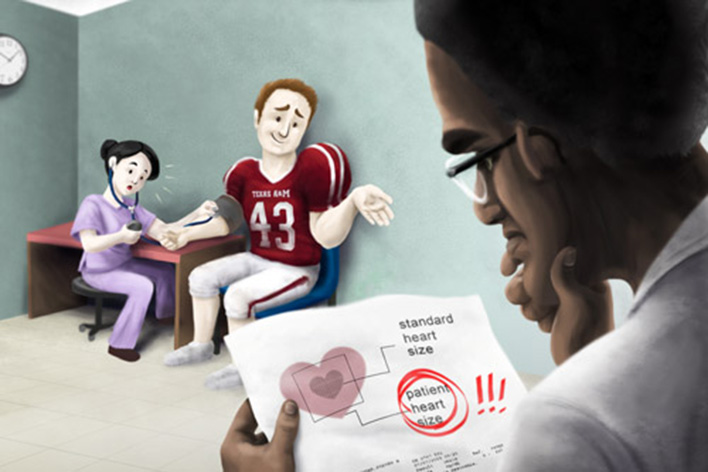Study sets benchmarks to monitor cardiac health in football players

Image: Academic Affairs Communications, Research Communications and Public Relations
U.S. football players tend to have larger-than-normal hearts and higher-than-average blood pressure. At what point does this become dangerous? New research at Texas A&M is trying to find out.
In a new study, a research team gathered data from 80 Texas A&M football players over three years. The team compared the players’ cardiac data with levels that doctors deem normal.
The researchers recently published their findings in The American Journal of Cardiology. Their study:
* Confirmed that football players tend to have enlarged hearts with thicker walls, but noted that in many cases the size and fitness of the players may cause this.
* Found 64 percent of the players in the study registered blood pressure levels that are above normal, but fall short of what doctors consider high blood pressure.
Before the study, doctors lacked benchmarks for screening football players for cardiac health, said the study’s co-author, John Erwin, III, an associate professor in the Department of Internal Medicine, College of Medicine.
“These results should serve as a basis to better define normal and abnormal findings in athletes’ hearts,” Erwin said.
The study says nothing about how cardiac health will affect a player’s performance, said team leader Stephen Crouse, a professor in the Department of Health and Kinesiology, College of Education and Human Development, and a joint professor in the Department of Internal Medicine, College of Medicine.
“We don’t say anything about having a bigger heart making you a better athlete,” Crouse said. “All we’re trying to do is get information that will help us make health judgments and help the athletes be healthier.”
More from the College of Medicine and the College of Health and Kinesiology

